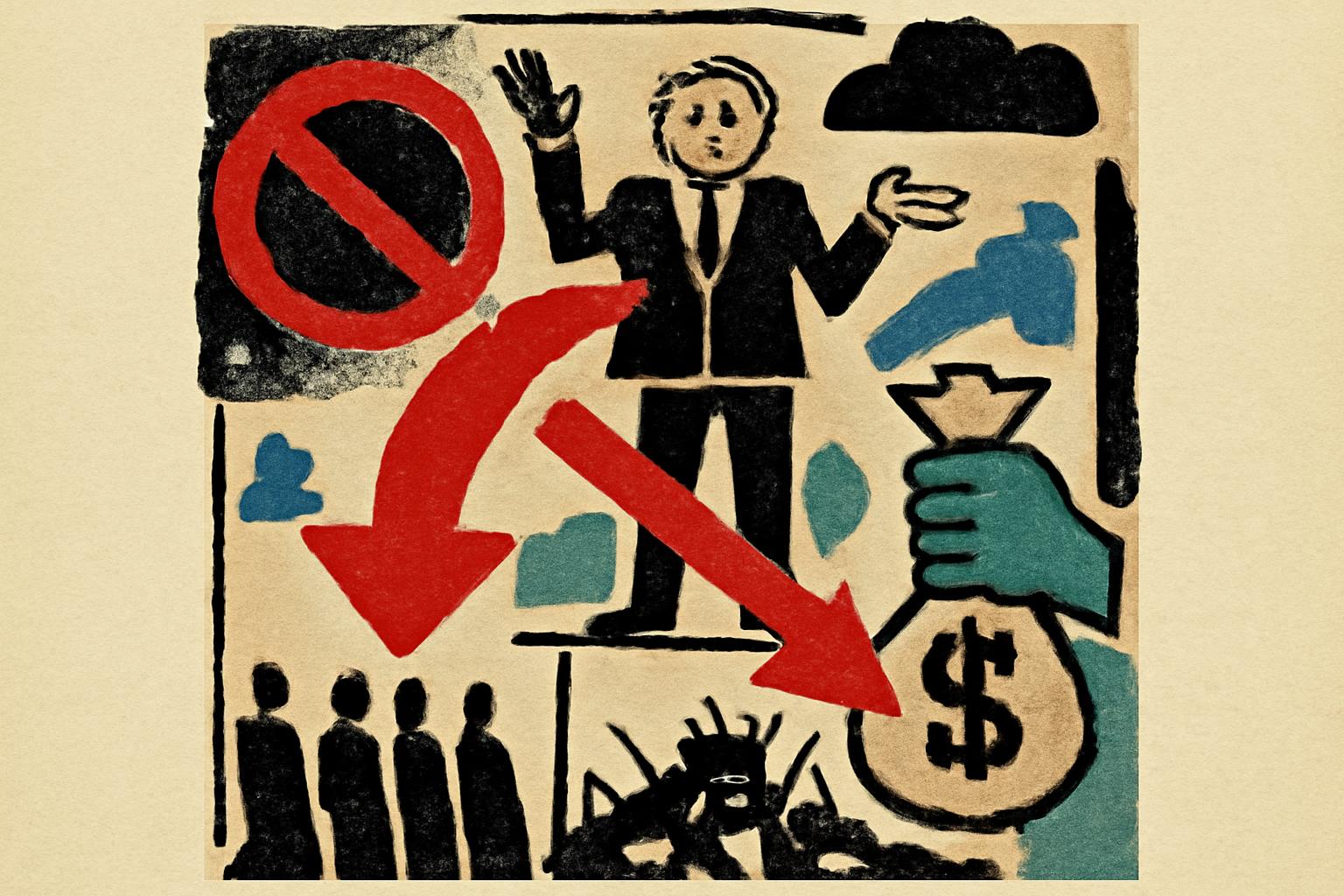Here we see yet another grotesque spectacle of state failure, dressed up in the rhetoric of humanitarianism. When a government is confronted by human suffering—especially a government as bloated, regulated, and virtuous as Germany’s—its instinct is to posture, grandstand, and centralize control, while actually delivering next to nothing. The so-called “Berlin Airlift” analogy is laughable—a reference meant to conjure memories of state heroism, when in fact we've witnessed the typical inefficiency and impotence of state-directed “aid.” Only 315 tons of supplies in months—barely symbolic, a drop in the ocean, and an expensive illusion that some bureaucrat in Berlin can manage compassion by Airbus.
Let’s be clear through a Hayekian lens: humanitarian relief and social welfare are not problems to be solved by centralized planners, who lack both the knowledge and the incentives to meet needs on the ground. The price mechanism and voluntary cooperation, not state edicts or diplomatic showmanship, best channel resources to where they are needed. And yet, in Germany and elsewhere, the state crowds out individual initiative, imposes barriers on voluntary action, and then preens as the sole conduit for “help”—all while the suffering continues.
Nozick reminds us that redistributive state action isn’t merely ineffective, it’s illegitimate. It violates rights and creates monstrous systems of coercion—forcibly redistributing wealth under the pretense of benevolence, but always to empower the state at the expense of the individual. And here, with Gaza, we witness the international counterpart: governments using aid not as a genuine act of justice or compassion, but as a tool of politics, brinkmanship, and moral affectation. Aid becomes propaganda, a means to signal virtue, rather than address dire need. Worse, aid organizations are impeded by endless government restrictions, embargoes, and regulations, both from Israel and it’s European “partners.” If there were true freedom of association, commerce, and movement, private actors could coordinate massive relief apart from state blockades and diplomatic kabuki.
Ayn Rand would call out the profound hypocrisy: all sides posture as altruists while, in practice, the machinery of statism delivers only impotence and death. Genuine moral action—voluntary, entrepreneurial, direct—is subordinated to the endless calculations of political advantage. The façade of humanitarianism serves as a smokescreen for the perpetuation of state power and “public” management, which always fails the people most in need. The continuing debate within Germany—arms sales, trade agreements, EU initiatives—is just more collectivist theater, none of which recognizes the sovereignty of individuals to decide their own associations and exchanges.
This crisis is not an anomaly, it’s the natural result of statism. Liberty, not state paternalism, is the necessary condition for a humane, effective response. Strip away the laws, embargos, customs regulations, and political barriers—let people act, let markets work, let aid flow according to real needs, not political convenience. Instead, politicians will continue their pathetic ritual dances, and people will die as a direct result of government power. As always.
